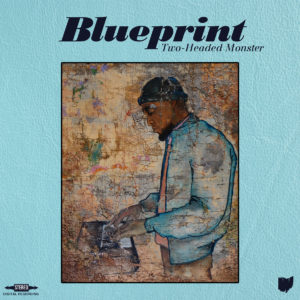How to Decide If You Need a Manager

Despite the up-and-down nature of the music industry, I have managed to make a career as a full-time artist for almost eleven years now. As one would expect, being an entrepreneur hasn’t been easy, but it has been extremely rewarding. It has also been an experience that, for the most part, I have navigated alone. Although I’ve received great advice and counsel from other artists and people along the way, I have never had a real manager.
I’m not saying that my decision to not have a manager is the right decision for everybody, only that it has been the right decision for me thus far. There are days when I wish I had a manager to handle certain things and days when I’m glad that I didn’t.
I cross paths with a lot of newer artists who are trying to decide whether or not they should get a manager. Some of these artists are just starting out, while others have been around for a few years and seen success on their own.
It’s fairly easy to make the case for management when you look around the music industry and see that every artist that’s signed to a major label either has a manager or a team of managers in place. This situation makes it easy to assume that the difference between being an unsigned independent artist and being a signed major-label artist is having management. If only it were that simple. Even though most of the successful independent artists I know either don’t have managers or didn’t add management until they were already successful, it can’t be assumed that’s always the case. What’s important to understand that there are no absolutes–only what works best for a certain person in a specific situation. The realities and circumstances of one artist cannot be indiscriminately cast upon another.
Therefore, the obvious question becomes: how does an artist know if they need a manager?
I believe making the decision is a three-part process.
The first part involves defining exactly what a manager is, the second part establishes requirements for the artist, and the third part establishes requirements for the selection of a manager.
PART ONE: MANAGEMENT DEFINITION
One of the biggest problems I’ve noticed in the process of evaluating management is that most artists have never put any thought into what a manager is and does. This lack of understanding results in miscommunication and unrealistic expectations between the artist and management, which often taints the selection process as well as the working relationship.
So, what exactly is a manager?
Before we can answer that, we must acknowledge that what we commonly refer to as a “manager” in the music industry is actually short for “business manager.” Why is that important? Well, because it hints at the core misunderstanding artists have about the role of the manager, which is that the manager’s primary responsibility is managing them--not their business. While there are business managers who act as babysitters of spoiled artists who can’t handle basic tasks on their own, that is not what they should be doing with their time.
A business manager is a person responsible for managing all business related to a specific organization. In the case of a recording artist, the manager (i.e. business manager) is responsible for handling all business related to the music the artist creates.
There are some important takeaways from this.
The first takeaway is that the manager is not supposed to manage the artist’s personal life and affairs, only their business. They are not supposed to be running their errands, answering their fan-mail, or walking to brooklyn to get them cheesecake–unless those activities actually generated business that needs to be managed. In general, tasks of that nature should be assigned to assistants or interns–not business managers.
The second, and most important, takeaway is that for a business manager to do their job effectively, there must actually be business that needs to be managed. That’s right folks, business is the operative word.
All too often, I hear an artist who has no interest, buzz, or following tell me that they need management. In their eyes, a manager is supposed to create their buzz and following by introducing them to new opportunities. They fail to acknowledge that a manager is really a business manager, and should therefore manage existing and new business–not create business opportunities out of thin air. Therefore, if you do not have business (or the building blocks for business) in place – which in the music industry is a following, sales, or buzz – then you don’t have anything for a manager to handle. Nor do you have any incentive for a prospective manager to work with you.
As you can see, this lack of understanding is the main reason that many artists with managers fail. Instead of putting their manager in a position to manage and increase their business, they treat them as babysitters. Tasking their business managers with all the menial tasks they don’t feel like doing only ties the managers hands and constricts their effectiveness.
This lack of understanding is also why many artists without managers cannot get them. Why would any business manager want to do all the legwork that the artist should be doing if there isn’t enough business being generated to justify the time they have put into it? They wouldn’t. Yet, many nieve artists fully expect management to build something they’re either too lazy or too insulated to build on their own.
An artist who understands that a manager is really a business manager will avoid these pitfalls. This will aid them in attracting and retaining the right management.
In summary:
1. Understand that a manager is really a business manager, not a personal assistant, and not a babysitter.
2. Understand that having business is a requirement for hiring a business manager.
PART TWO: ARTIST REQUIREMENTS
Understanding
The artist must operate with the proper knowledge and understanding of the manager’s role. Specifically, that a manager is really a business manager and is there to manage their business–not their personal life. The artist must also understand that a manager’s decision to work with them is based on their potential as well as proven ability to generate business–not their talent alone.
Vision
The artist must have a vision and know exactly what they want out of the relationship. This involves being able to make an honest assessment of where their career is right now and where they would like to be. Phrases like “I just want to be rich” or “I want to sell a lot of records” are generic and should be abandoned in favor of more specific and measurable goals like, “I would like to have 1000 more twitter followers before the end of the year” or “I would like to generate X dollars in Itunes sales per month.” Without a clear vision of where they want to be, it is impossible to recruit others to help them get there.
Opportunity
The artist must view his or her career an opportunity that a prospective manager would want to be a part of. After all, they are investing time and money into the artist. Therefore, there must be an opportunity that justifies their investment. As mentioned in part one, the artist must have more business than they can handle alone and must know the difference between business and busywork. Business is opportunity. If the artist doesn’t have business that needs to be handled, then they are not ready for management.
Open
The artist must be open-minded to the input of management. Having a manager does not simply mean telling them what to do, it also means accepting their ideas and input. It means accepting their mentoring and counsel. It is a partnership.
PART THREE: MANAGEMENT REQUIREMENTS
Time
The prospective manager must have time to work with the artist. Although it seems logical to approach the manager with the largest stable of successful artists, this may not always the best move for an artist. In many instances, it’s better to have a lesser-known manager busting their ass for you than a well-known manager being half-assed. Therefore, the prospective manager must have time to work with the artist.
Knowledge
Ideally, the prospective manager should have more knowledge and experience than the artist. If they don’t, then expect problems to arise. The goal of obtaining management is to build a foundation of knowledge, experience, and talent that opens the door for upward mobility. That being said, if both parties are inexperienced and lack knowledge of the terrain they are operating within, they will spend more time spinning their wheels than moving forward. In some cases, it is sufficient for the manager to have knowledge in a specific area that the artist lacks. In other areas, the managers experience in all areas is the key to upward mobility.
Excitement
This cannot be emphasized enough–the manager must be at least as excited about the artists’ music as they are, if not more. Again, it’s better to have a lesser known manager who is excited, than a well-known manager who is not.
Faith
The manager must have faith that whether it is with their next record or two or three records in the future, that the artist is going to create something special and justify the time they invested in them.
IN CONCLUSION
While I know there are no set rules to choosing a manager, I hope that this has been helpful in at least outlining some of the criteria for choosing a manager as well as deciding if you are ready for a manager. If you have decided that management is for you–seek to be an artist that managers love to work with, and you will attract management that loves working with you. If you have decided that management isn’t for you, continue on your path with the knowledge that you at least went through the evaluation process correctly. There is a lot more I can write on this subject, but for the sake of brevity I will bring it to an end here.
Thanks for reading! If you’re an artist and dug this, let me know in the comments section and I’ll write more.
Word is Blog
BLUEPRINTMy latest album Two-Headed Monster is out now. Order/Listen here HERE
